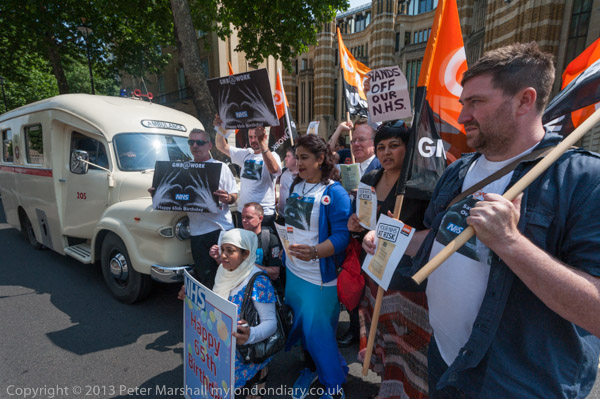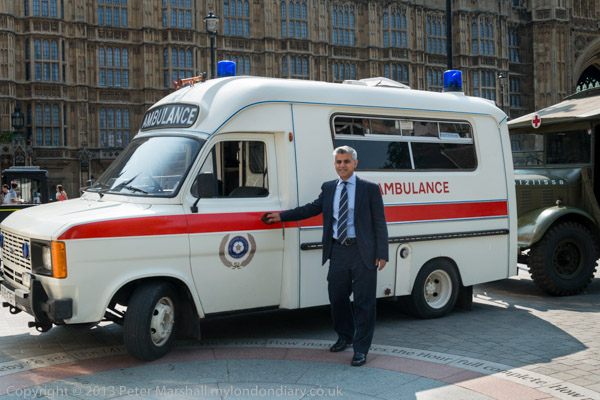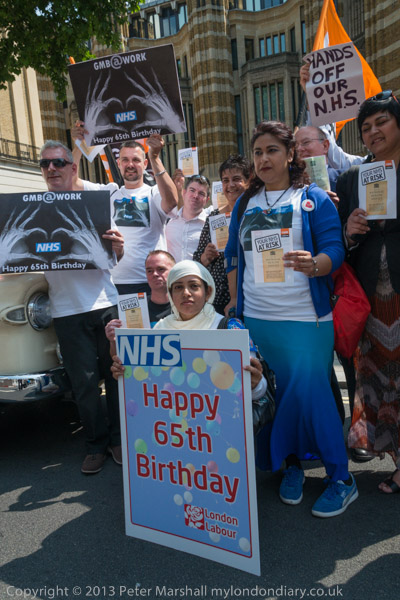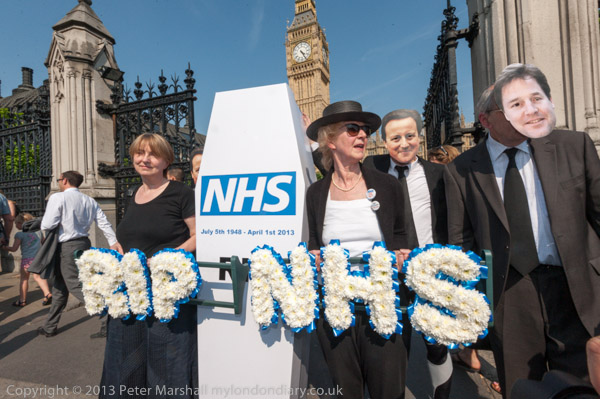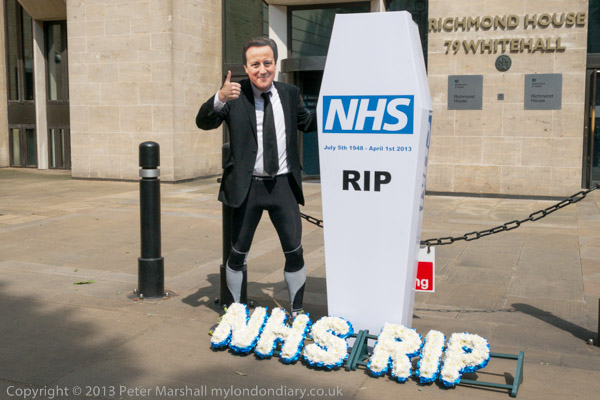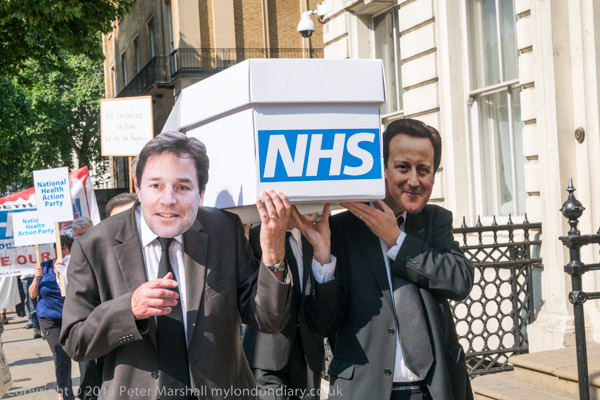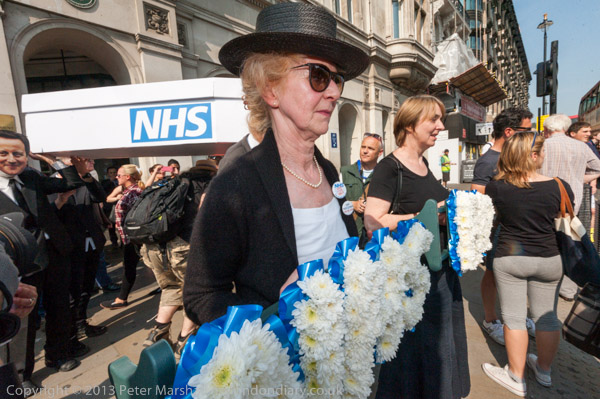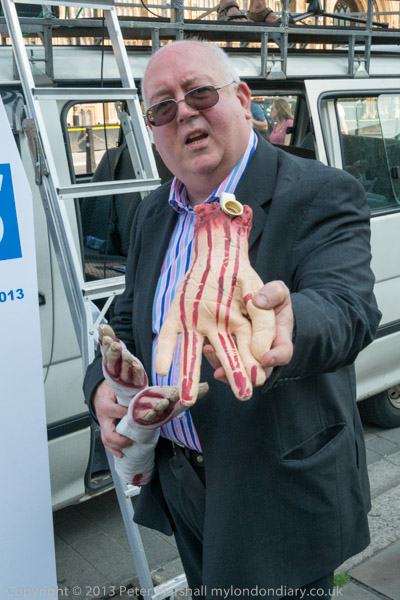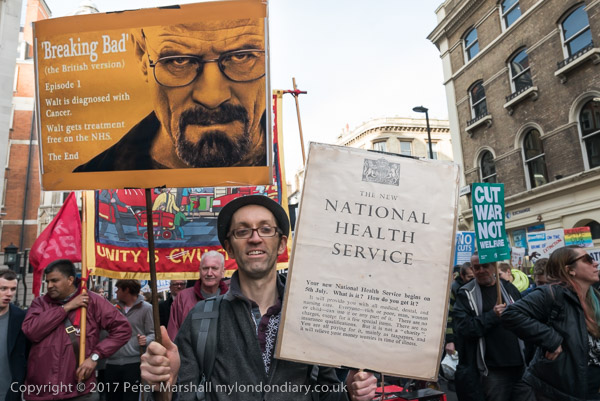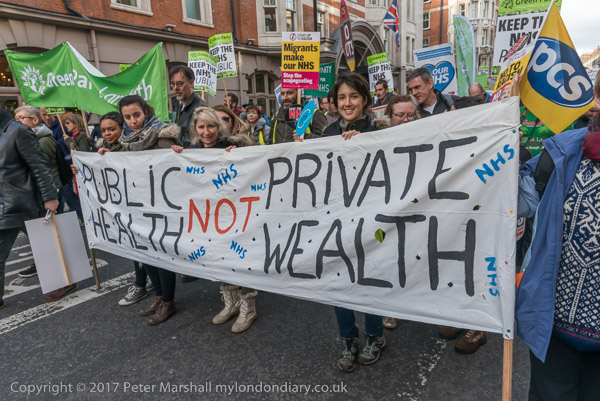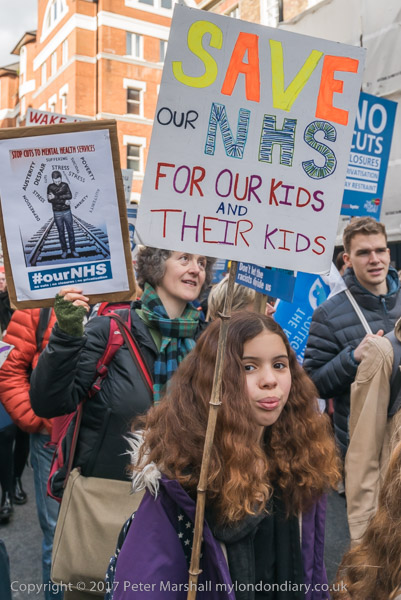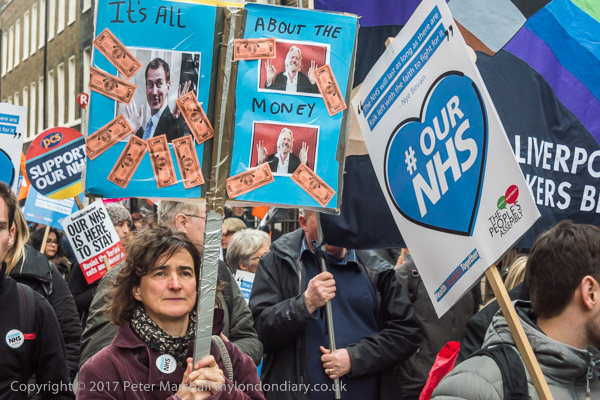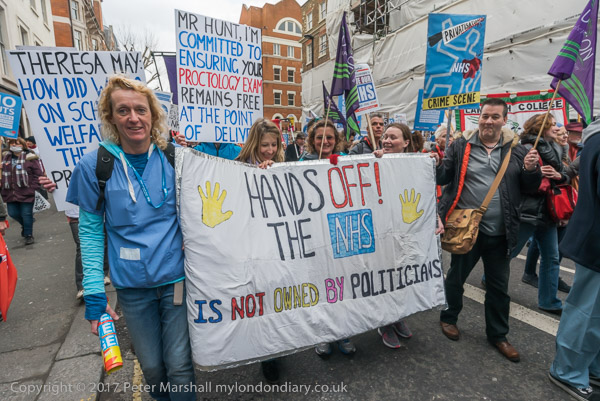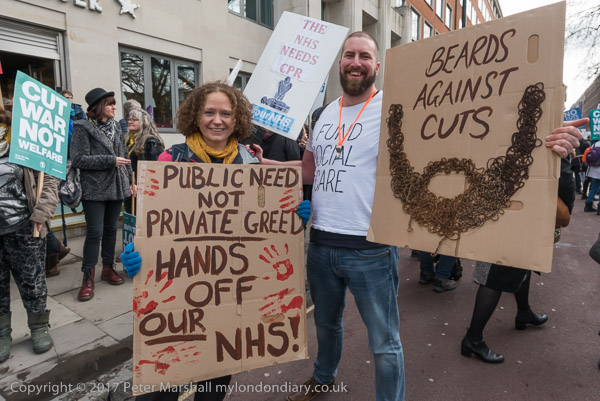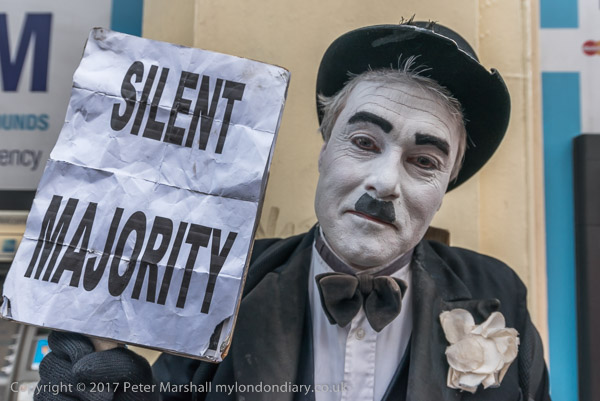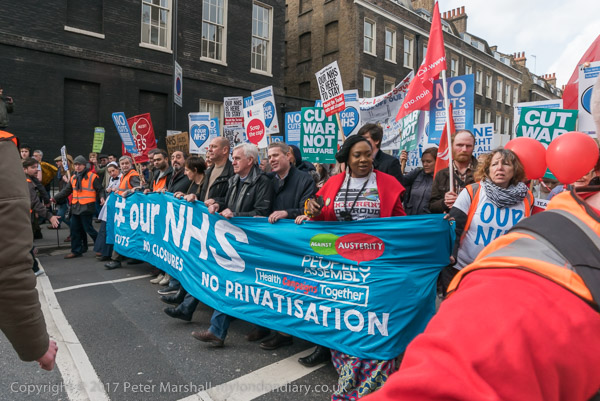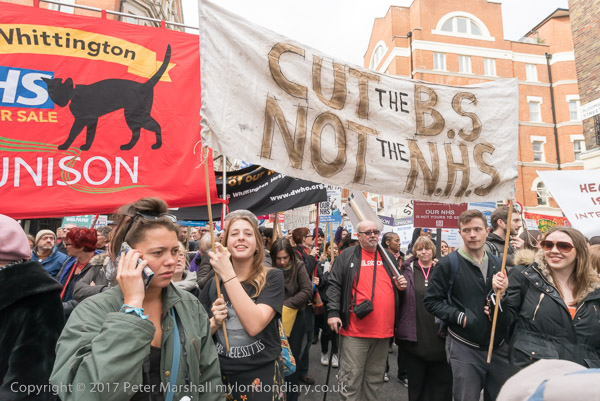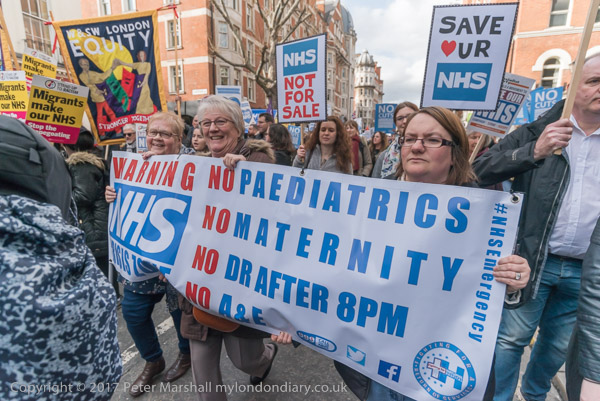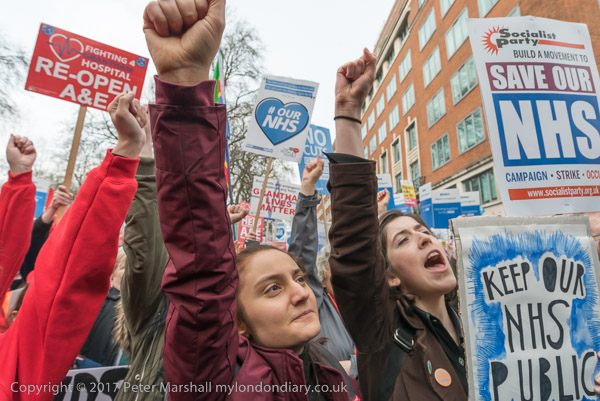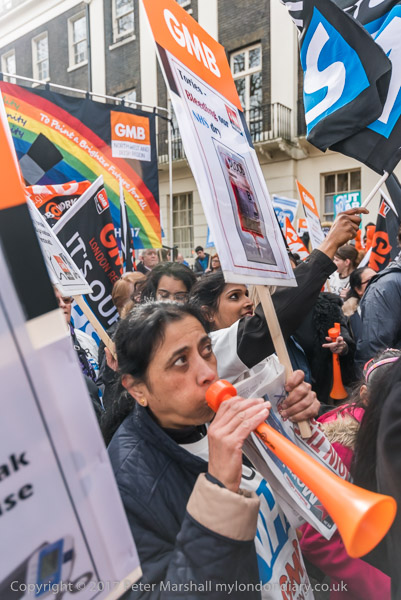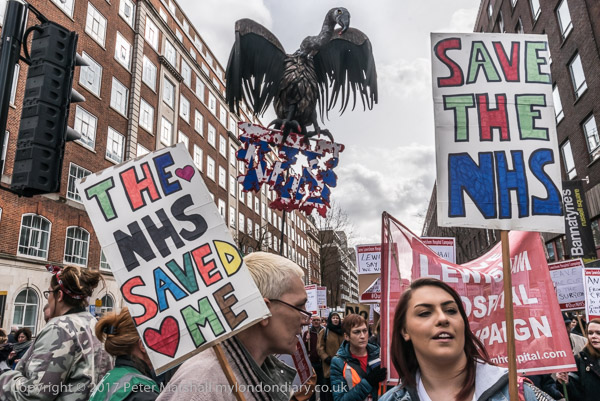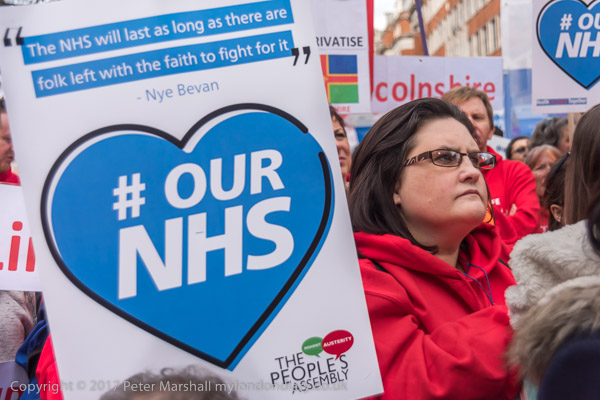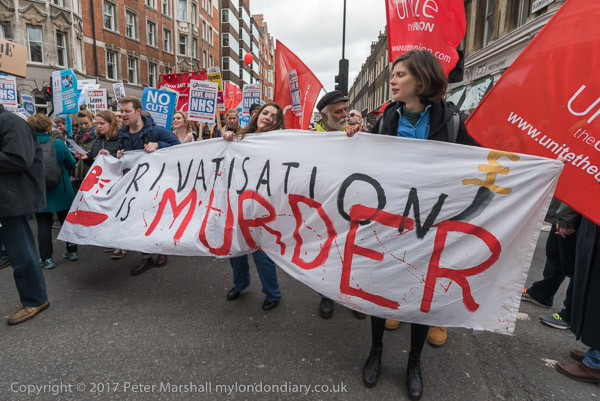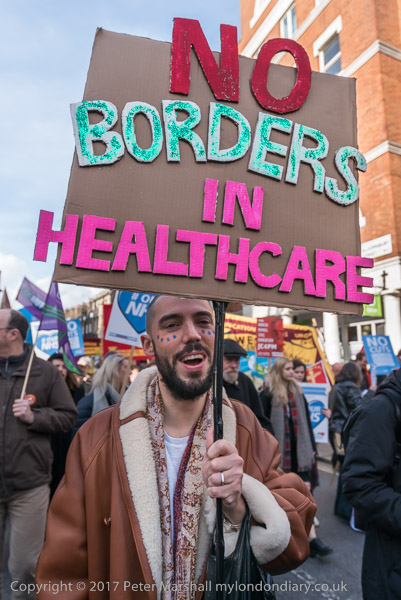End NHS Privatisation, Kurds Call For Democracy: On Friday 4th November 2016 I photographed two unrelated protests. Opposite Parliament a rally supported the second reading of Labour MP Margaret Greenwood’s NHS Bill to end the creeping privatisation of our National Health Service, and from there I joined hundreds of Kurds as they marched through Parliament Square on their way to protest at the Turkish Embassy follow the arrest of leaders and MPs of the pro-Kurdish oppposition in Turkey earlier that morning.
Bill to reverse NHS Privatisation
Old Palace Yard, Westminster
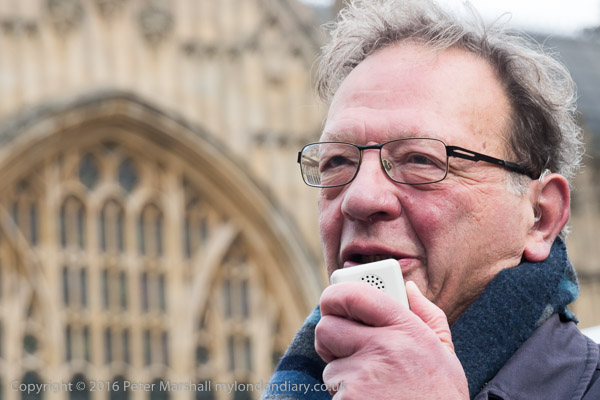
Labour MP Margaret Greenwood’s NHS Bill which proposes to fully restore the NHS as an accountable public service and to prevent further marketisation at the hands of the Tories stood little chance of actually being debated that day as it was low on the list. Of course had no chance of ever becoming law against a government and opposition majority including many MPs receiving donations or having interests in private healthcare.

The privatisation of NHS services was taking place under New Labour before the Tories came to power in the 2010 coalition but was accelerated by the Health and Social Care Act 2012 which allowed NHS services to be contracted out to ‘any qualified provider‘, including private companies – and increasingly Clinical Commissioning Groups have been under pressure to outsource.

In 2016 Sustainability and Transformation Plans were being developed in private for 44 areas covering the whole of England to be in place by Christmas. The NHS England director of strategy Michael McConnell had said that these STPs offer private sector companies an “enormous opportunity” but critics said that they could mean the end of the NHS as we have known it.

Private healthcare is parasitic on the NHS. Their contracts cherry-pick the more straightforward areas of provision – such as my annual diabetic eye photographs – while leaving the more difficult areas to the public sector. And where complications do happen, the private NHS badged providers are quick to pass on patients to the real NHS as they do not have the trained staff or resources to deal with them.

Only the NHS is there to cope with accidents and emergencies – the private sector offers no A&E services. And it is only the NHS that trains the doctors and other medical staff that keeps the private hospitals and the services that private healthcare contracts from the NHS running.

Of course there is no chance of Parliament reversing this trend while private healthcare makes huge donations to politicians to pursue their interests. ‘Every Doctor ‘ reported in April 2025 that “The Labour Party received four times as much in donations from donors connected to private healthcare than all other political parties combined … in 2023-2025“. Health Minister Wes Streeting alone has received “almost £167,000 from individuals and companies with ties to the private healthcare sector.” The total amount of donations to politicians from people and companies involved in private healthcare in that two year period was more than £2.7 million.

On Byline Times you can read a 2021 investigation “The Conservative Party’s Private Healthcare Patrons” which explores “the financial ties between Conservative MPs and private health companies“. It’s a remarkable list of MPs and Tory Peers with details of their connections and the amounts involved.
Although the Byline Times article is careful to point out that “There is no evidence that any of the companies have benefited due to their relationships with Conservative MPs or donors” it is hard to believe that these and the other donations have had no influence on the increasing takeover of NHS services by private healthcare companies. And although there do seem to be clear possibilities of conflicts of interest so far as I am aware no MP or Peer has ever abstained from a vote because of this.
The MP’s code of conduct is extremely weak on this matter, and simply relies on MPs to do the right thing – “Members must base their conduct on consideration of the public interest. They must avoid conflict between personal and public interest. If there is any conflict between the two, they must resolve it at once in favour of the public interest.”
This is one of the areas which have caused the current high levels of distrust of politics and politicians. We need much tighter controls on lobbying, an end the system which allows large political donations in cash or kind to MPs, and ensure that MPs who have conflicts of interest abstain from voting on these issues. MPs are paid to represent their constituents, not healthcare companies and not their own financial interests.
More about the protest on My London Diary at Bill to reverse NHS Privatisation
Kurds march for Peace & Democracy

I left the protest at Parliament when over 500 Kurds marched into Parliament Square protesting noisily against the arrest early that morning of two leaders of Turkey’s pro-Kurdish Peoples’ Democratic party (HDP), along with at least 11 MPs.
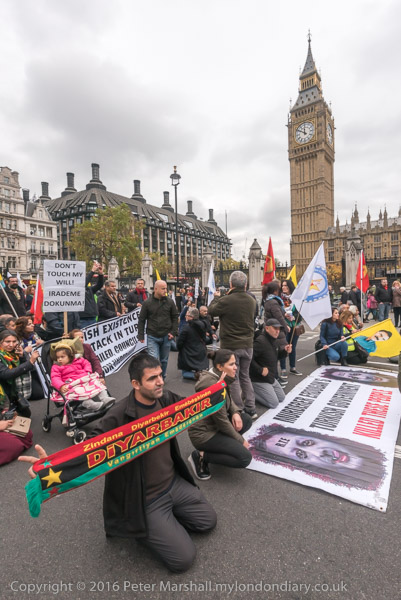
They sat down briefly on the road in front of Parliament on their way to the Turkish Embassy in Belgrave Square.

At Belgrave Square police tried to stop them and keep them on the opposite side of the road to the Embassy, but they simply walked around the police line and crowded on the pavement and road in front of the Embassy door.

Eventually the police abandoned their attempts to push the protesters back and simply stood several lines deep in front of the doorway while the protest continued.


The rain came down heavily and we were all getting wet but the noisy protest and speeches continued. Eventually the protesters moved away from the embassy and I left them.

Many more pictures on My London Diary at Kurds march for Peace & Democracy.
Flickr – Facebook – My London Diary – Hull Photos – Lea Valley – Paris
London’s Industrial Heritage – London Photos
All photographs on this page are copyright © Peter Marshall.
Contact me to buy prints or licence to reproduce.
